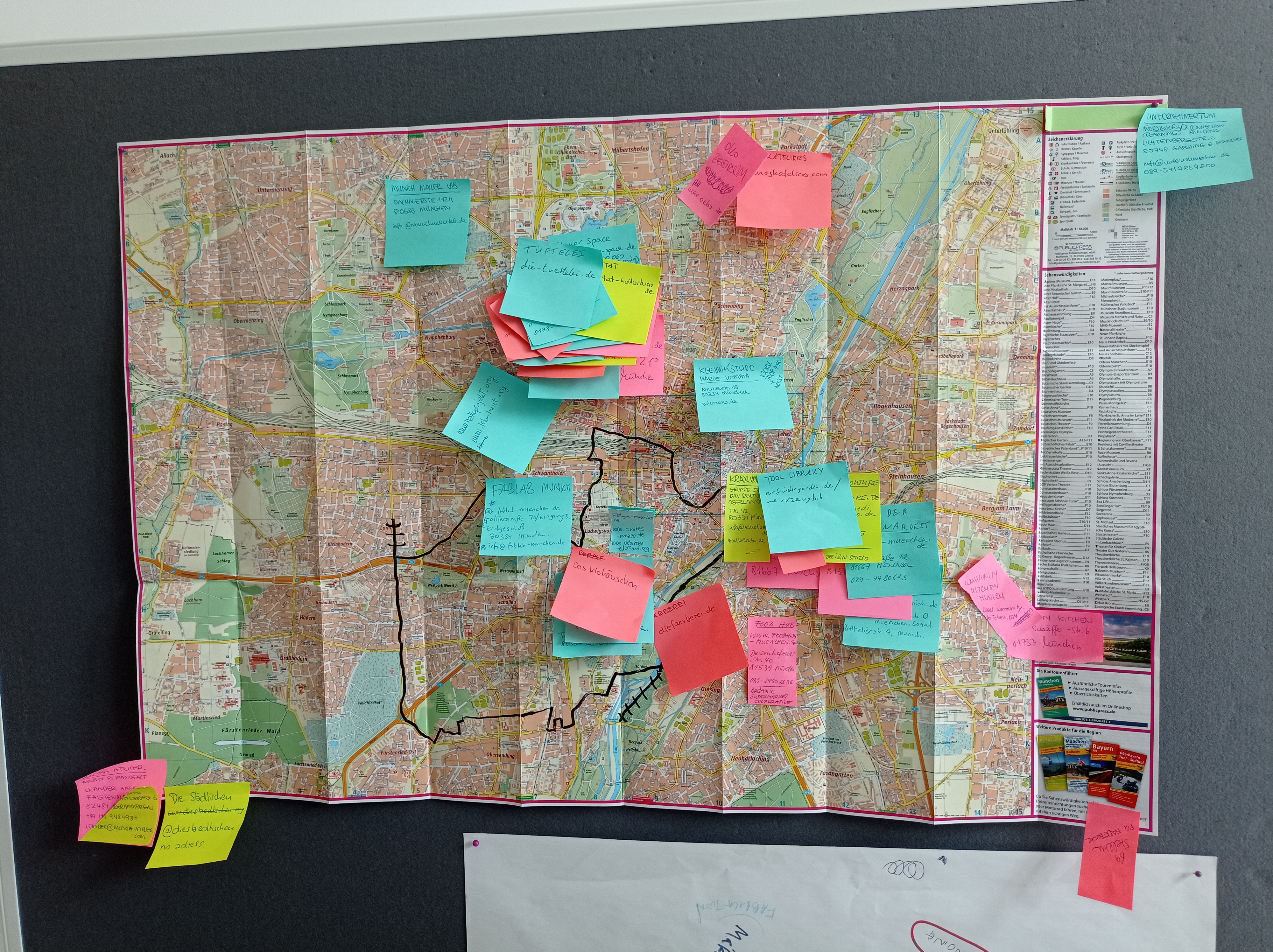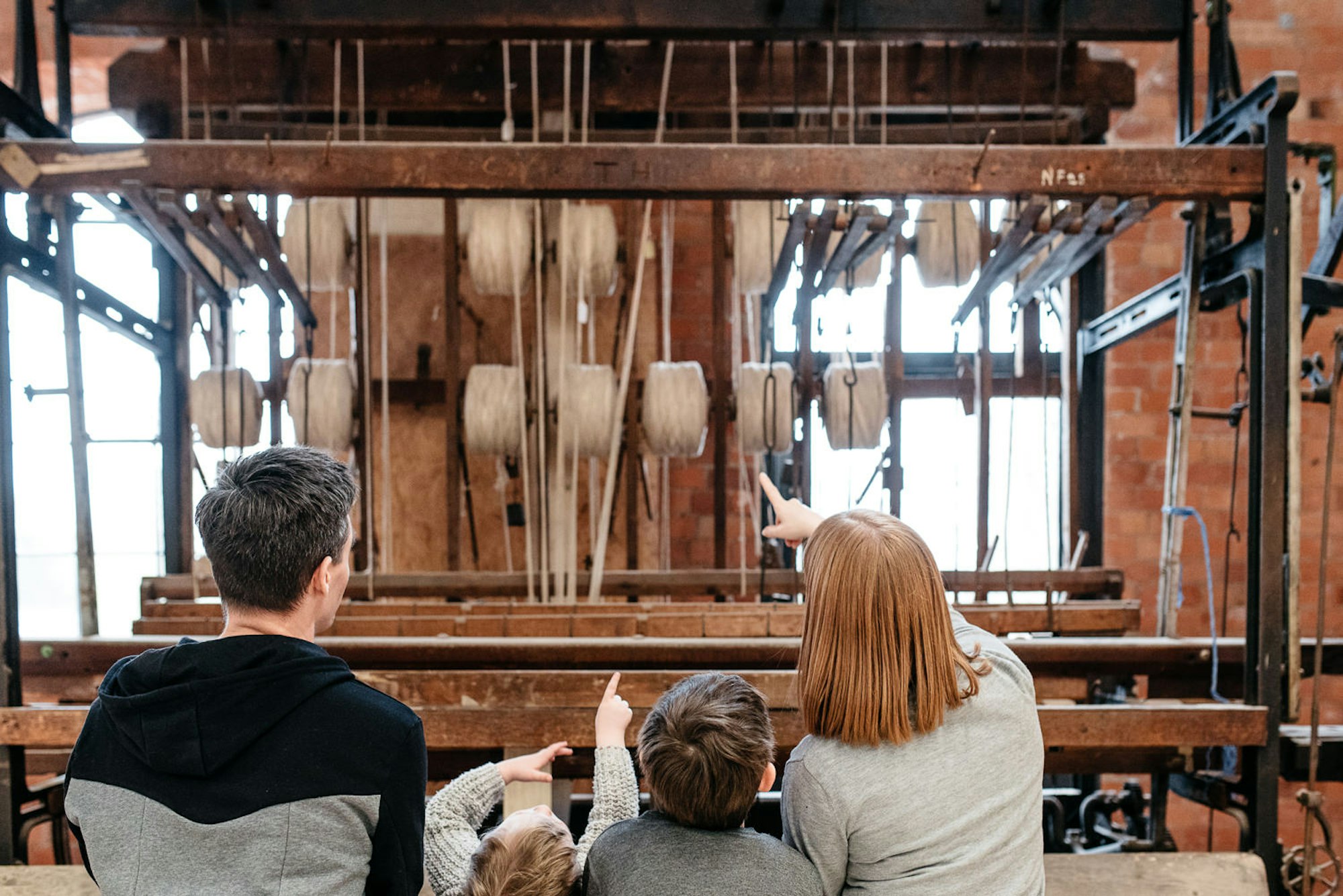Why Open Matters

Quite often you will hear us talking about the importance of keeping Make Works “open”. You might have heard us discussing our involvement with Mozilla Open Leadership programme, going to events like Moz Fest, licensing content under Creative Commons or opening up our API for others to use. We thought it would be good to explore what we mean by “open internet”, and how we apply that thinking to Make Works.
Image: Snapshot of the Make Works database.
1. Access to Information
First and foremost we believe that the information we are gathering about manufacturing at Make Works (our database, photography, film, sound, words, gifs) should be openly accessible - similar to a public library with a focus on production.
The intention of our database is to connect people directly to the information they need to be able to begin making and repairing things themselves - which we hope will democratise access to local production, have a positive impact on the environment, invest in local economies and skill - and encourage people to innovate with materials, making and manufacturing processes.
As computer programmer, activist (and one of our internet heros) Aaron Swartz described in the Guerilla Open Access Manifesto, "information is power, but like all power there are those that want to keep it for themselves." At Make Works, we absolutely do not want to keep this information to ourselves - the more people that can access it and help us change the way the world manufactures things the better!
The dictionary describes 'open' as "something that is not closed or blocked" - which works as a general understanding of what this means any digital project. For Make Works, this means removing as many barriers that might be in place for somebody being able to understand or use our information; such as cost, navigation, digital literacy or privacy concerns. This is why you don't even need to sign up to access the information on Make Works, there is no paywall, and we don't track the enquiries that go through the site (out of respect for user privacy).
Open internet can sometimes be referred to alongside terms such as “net neutrality”, “internet freedom”, or the “open internet”. This is about ensuring that no one company can hold a monopoly on the internet and that everybody can access it.
Open is both a movement and a model by which to both protect and change the internet. At its core it has 4 main values. Community; open source should encourage growth of community around their work, allowing people to participate in their work and being open to collaboration with other people. It should share resources, content and code - meaning it should be open, usable, copyable and remixable. Here's a little guide from Mark Surman at Mozilla;
We also like this definition from the Shuttleworth Foundation, this Open Definition, or the desciption about open source software from the Open Source Initiative are also useful. You also might want to read up on the Electronic Frontier Foundation, or Mozilla's Internet Health Report.
2. This is For Everyone
At Make Works, we think that all citizens should be able to have access to the information that can help them understand how the things they use are made or manufactured; as well as then being able to use this, to remake, adapt or repair those things for themselves. For example, this is why all of our manufacturing information and content can be accessed by absolutely anyone, for free.
We publish this content on the internet because we see it as the most widely accessible platform to share through - allowing us to reach more people than traditional distribution channels such as books or 1-1 talks. However, for this to work, we need to believe that the internet should be for everyone and be part of the community fighting for a better internet.
Paola Antonelli (Design Curator, MoMA) describes the internet as "one of the most radical social design experiments of the 21st century". This originated even on the early web, from the Whole Earth Catalogue feeling to publications such as Computer Lib!, through to when Tim Berners Lee released the World Wide Web in 1989 - describing his creation as "this is for everyone". This is something we try to implement in all aspects of the Make Works design.
3. Databases, Creative Commons and Reuse
Something we have realised more recently is that whilst our information we have collected about manufacturing is useful for its first purpose (making it easier to contact local factories) - that as a dataset it might have other uses for educational platforms, historical archives, making web extensions, supply chains, distributed design, or something we might not know about yet. For this reason, we've recently put our API online so that others can use it to make new things!
You can see some examples of how this might be used here and you can see the project on GitHub here.
4. Open Business Models
Something we are also interested in is how to make non-profit, open access platforms like Make Works financially sustainable. Keeping servers up to date, fixing bugs, improving the site design, building communities - is lots of fun, but also requires a level of economic investment. This research from Creative Commons presents some good ideas to start with, and you can find out about our own research trying to find these models is available here. You can also read about our decision to use crowdfunding platform, Patreon as part of this model here.
If you are looking If you want to see more about what we're doing with Mozilla and Open Leadership and the other projects who are joining us, you can see more here.
WORDS
Kaye SymingtonOctober 26, 2017
Categories
Article
Related stories
Why Make Work Locally
Alan Moore and Ten30 Fashion
Tips for Manufacturing in Scotland
A Life in Lace
In the Belly of the Beast: my one year manufacturing for Coca Cola



